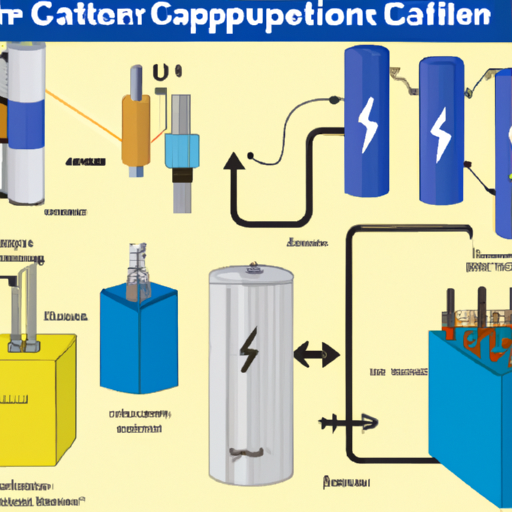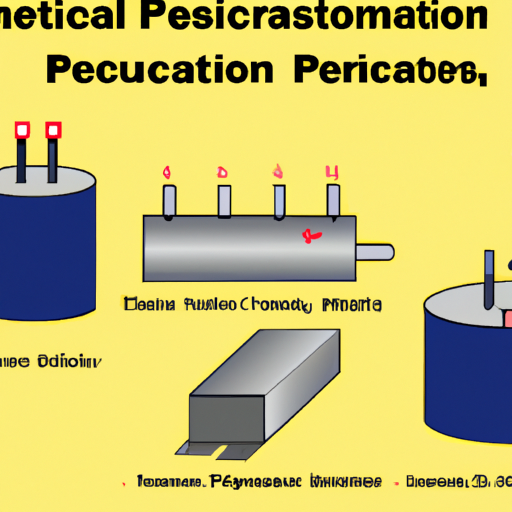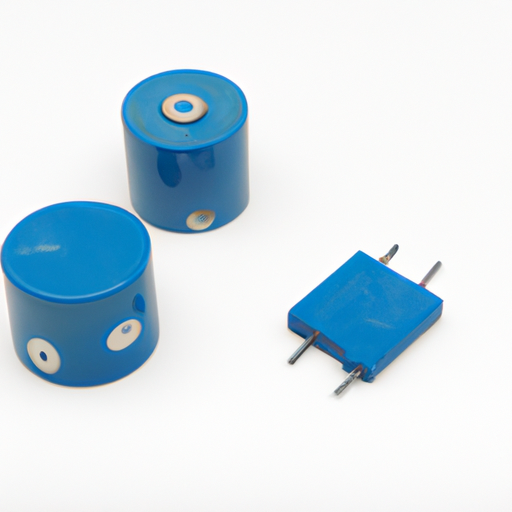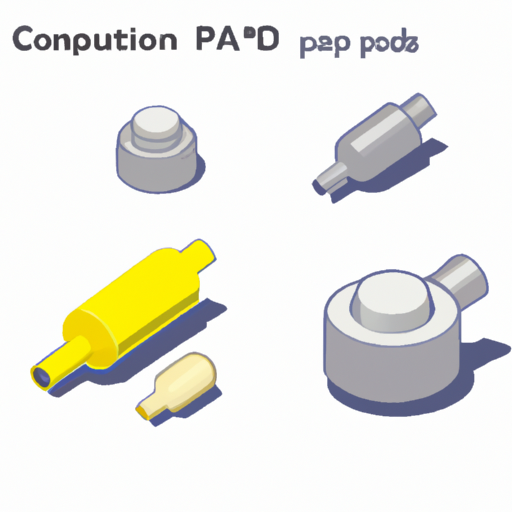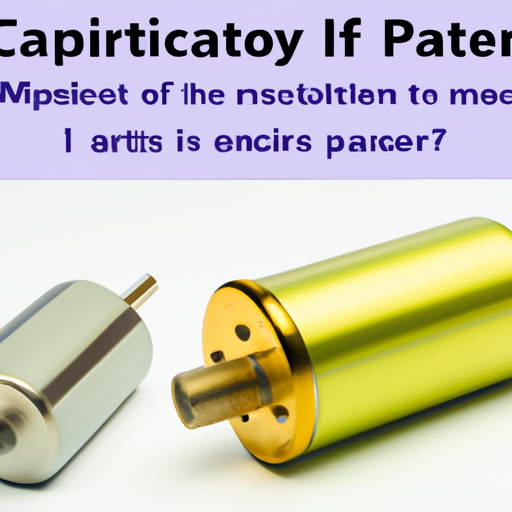What are the Main Applications of Capacitor Current?
I. Introduction
Capacitor current is a fundamental concept in electrical engineering, representing the flow of electric charge in capacitors. Capacitors are passive electronic components that store and release electrical energy, playing a crucial role in various electrical and electronic systems. Understanding capacitor current is essential for engineers and technicians, as it influences the performance and efficiency of numerous applications. This blog post will explore the main applications of capacitor current, highlighting its significance in power factor correction, energy storage, filtering, timing circuits, and more.
II. Basic Principles of Capacitor Current
A. Explanation of Capacitance
Capacitance is the ability of a capacitor to store electrical energy in an electric field. It is defined as the ratio of the electric charge (Q) stored on one plate of the capacitor to the voltage (V) across the plates. The unit of capacitance is the farad (F), which is a measure of how much charge a capacitor can store per volt. Capacitors come in various types and sizes, each suited for specific applications.
B. Relationship Between Voltage and Current in Capacitors
The relationship between voltage and current in a capacitor is governed by the equation:
\[ I(t) = C \frac{dV(t)}{dt} \]
where \( I(t) \) is the capacitor current, \( C \) is the capacitance, and \( \frac{dV(t)}{dt} \) is the rate of change of voltage over time. This equation indicates that the current through a capacitor is proportional to the rate of change of voltage across it. When a capacitor is charged, it draws current until it reaches the applied voltage, and when it discharges, it releases current back into the circuit.
C. Capacitor Charging and Discharging
When a voltage is applied across a capacitor, it begins to charge, and the current flows into the capacitor until it reaches the maximum voltage. The charging process follows an exponential curve, characterized by the time constant \( \tau = RC \), where \( R \) is the resistance in the circuit. Conversely, when the capacitor discharges, it releases stored energy, and the current flows out of the capacitor, also following an exponential decay.
III. Applications of Capacitor Current
A. Power Factor Correction
1. Definition and Importance
Power factor is a measure of how effectively electrical power is being converted into useful work output. A low power factor indicates poor efficiency, leading to increased energy costs and potential penalties from utility companies. Power factor correction (PFC) aims to improve the power factor of electrical systems, reducing energy losses and enhancing system performance.
2. Role of Capacitors in Improving Power Factor
Capacitors are widely used in PFC systems to counteract the inductive effects of motors and transformers, which can cause a lagging power factor. By adding capacitors to the circuit, the overall power factor can be improved, resulting in reduced reactive power demand and lower electricity costs.
3. Examples of Power Factor Correction in Industries
Industries with large inductive loads, such as manufacturing plants and HVAC systems, often implement capacitor banks for power factor correction. These systems can significantly reduce energy costs and improve the efficiency of electrical equipment.
B. Energy Storage Systems
1. Capacitors in Energy Storage
Capacitors are essential components in energy storage systems, providing rapid charge and discharge capabilities. Unlike batteries, which store energy chemically, capacitors store energy electrostatically, allowing for quick energy release.
2. Applications in Renewable Energy Systems
In renewable energy systems, such as solar and wind power, capacitors help stabilize voltage levels and smooth out fluctuations in energy generation. They store excess energy during peak production and release it during low production periods, enhancing the reliability of renewable energy sources.
3. Role in Electric Vehicles
Capacitors are increasingly used in electric vehicles (EVs) for regenerative braking systems, where they capture and store energy during braking. This stored energy can then be used to power the vehicle's electrical systems or assist in acceleration, improving overall efficiency.
C. Filtering and Smoothing
1. Capacitors in Power Supply Circuits
In power supply circuits, capacitors are used to filter out voltage ripples and smooth the output voltage. This is crucial for providing stable power to sensitive electronic devices, ensuring their proper operation.
2. Applications in Audio and Signal Processing
Capacitors play a vital role in audio and signal processing applications, where they are used in crossover networks to separate different frequency ranges. They help eliminate unwanted noise and improve sound quality in audio systems.
3. Importance in Communication Systems
In communication systems, capacitors are used in filters to remove unwanted frequencies and noise, ensuring clear signal transmission. They are essential in radio frequency (RF) applications, where signal integrity is critical.
D. Timing and Oscillation Circuits
1. Capacitors in Timing Applications
Capacitors are fundamental components in timing circuits, where they determine the time intervals for various applications. By charging and discharging at specific rates, capacitors can create precise timing signals.
2. Role in Oscillators and Signal Generators
In oscillators and signal generators, capacitors work in conjunction with inductors and resistors to produce oscillating signals. These circuits are used in a wide range of applications, from clocks to radio transmitters.
3. Examples in Clocks and Frequency Generators
Capacitors are used in quartz clocks and frequency generators to maintain accurate timekeeping and signal generation. Their ability to store and release energy quickly makes them ideal for these applications.
E. Coupling and Decoupling
1. Definition and Importance
Coupling and decoupling capacitors are used to connect and isolate different stages of electronic circuits. Coupling capacitors allow AC signals to pass while blocking DC, while decoupling capacitors filter out noise and stabilize voltage levels.
2. Applications in Amplifier Circuits
In amplifier circuits, coupling capacitors are used to connect the output of one stage to the input of another, ensuring that the desired signal is transmitted without distortion. Decoupling capacitors help maintain stable voltage levels, improving overall performance.
3. Role in Noise Reduction
Decoupling capacitors are crucial for reducing noise in electronic circuits, ensuring that sensitive components operate reliably. They help filter out high-frequency noise, enhancing the performance of digital and analog systems.
F. Motor Starting and Running
1. Capacitor Start and Run Motors
Capacitors are commonly used in single-phase induction motors to provide the necessary starting torque. Capacitor start motors use a capacitor to create a phase shift, allowing the motor to start efficiently.
2. Applications in HVAC Systems
In HVAC systems, capacitors are used in compressor motors to improve starting performance and energy efficiency. They help ensure that the motors operate smoothly and reliably.
3. Importance in Industrial Machinery
Capacitors are essential in various industrial machinery applications, providing the necessary starting and running torque for motors. Their ability to improve motor performance contributes to increased productivity and reduced energy consumption.
G. Voltage Regulation
1. Capacitors in Voltage Regulation Circuits
Capacitors are used in voltage regulation circuits to maintain stable voltage levels. They help filter out voltage spikes and dips, ensuring that electrical systems operate within specified limits.
2. Applications in Power Supply Systems
In power supply systems, capacitors play a critical role in voltage regulation, providing stable output voltage to connected devices. They help prevent damage to sensitive electronics caused by voltage fluctuations.
3. Role in Stabilizing Voltage Levels
Capacitors help stabilize voltage levels in electrical systems, ensuring reliable operation. Their ability to store and release energy quickly makes them ideal for maintaining voltage stability in various applications.
IV. Emerging Applications of Capacitor Current
A. Supercapacitors and Their Applications
1. Definition and Characteristics
Supercapacitors, also known as ultracapacitors, are advanced energy storage devices that offer higher capacitance values than traditional capacitors. They can store large amounts of energy and deliver it quickly, making them suitable for various applications.
2. Applications in Energy Storage and Power Delivery
Supercapacitors are increasingly used in energy storage systems, providing rapid charge and discharge capabilities. They are ideal for applications requiring quick bursts of energy, such as in electric vehicles and renewable energy systems.
3. Future Trends in Supercapacitor Technology
As technology advances, supercapacitors are expected to become more efficient and cost-effective. Research is ongoing to improve their energy density and cycle life, making them a viable alternative to traditional batteries in many applications.
B. Capacitor Current in Smart Grids
1. Role in Modern Electrical Grids
Capacitor current plays a vital role in modern electrical grids, helping to manage power flow and improve system reliability. Capacitors are used to enhance voltage stability and reduce losses in transmission lines.
2. Applications in Load Balancing and Energy Management
In smart grids, capacitors are used for load balancing, ensuring that energy is distributed efficiently across the network. They help manage peak loads and improve overall system performance.
3. Impact on Renewable Energy Integration
Capacitors are essential for integrating renewable energy sources into the grid, helping to stabilize voltage levels and manage fluctuations in energy generation. Their role in smart grids is crucial for achieving a sustainable energy future.
V. Conclusion
In summary, capacitor current is a fundamental aspect of electrical engineering with a wide range of applications. From power factor correction and energy storage to filtering, timing circuits, and voltage regulation, capacitors play a crucial role in modern electrical systems. As technology continues to evolve, the importance of capacitor current will only increase, with emerging applications in supercapacitors and smart grids paving the way for a more efficient and sustainable energy future. Understanding the various applications of capacitor current is essential for engineers and technicians, as it directly impacts the performance and efficiency of electrical systems.

